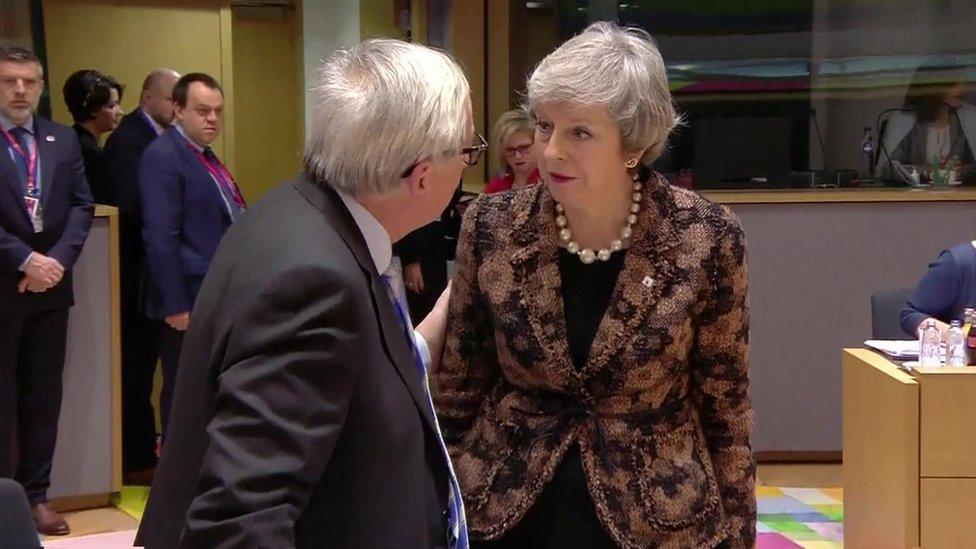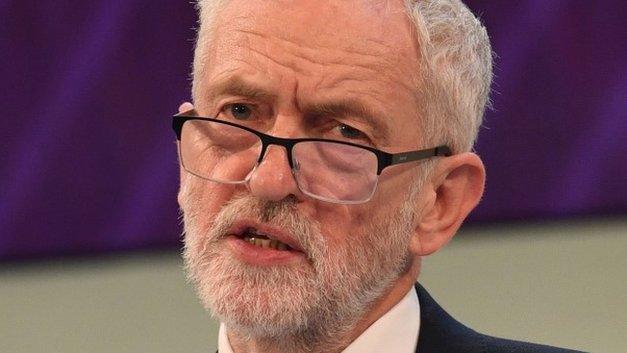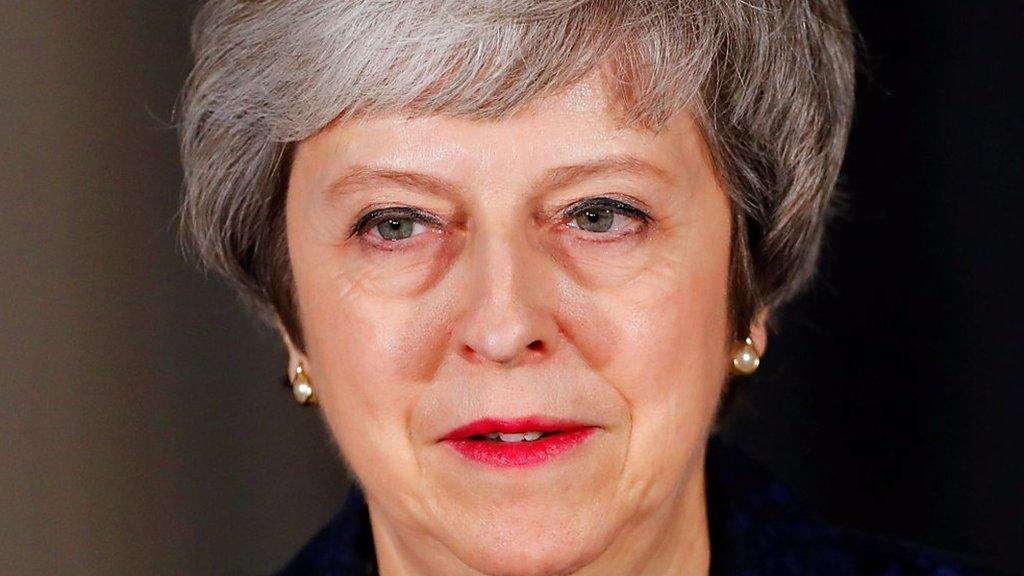Brexit latest: I'm confused... what just happened?
- Published
Theresa May: How the PM fought through Brexit battles
It's been an eventful week in UK politics, to put it mildly.
Prime Minister Theresa May began the week hoping to push through her vision for Brexit. Days later, she survived a coup from within her own Conservative party.
But how did this happen? What does it mean? And what comes next?

Politics is all about numbers and dates.
This week, 650 members of the UK parliament were supposed to vote on the deal Theresa May struck with EU members on how exactly the UK should leave the EU.
Instead, 317 Conservatives had a vote of no confidence in her leadership. She won, but by only 200 votes to 117, leaving her weakened and her party more divided than ever.
What's next?
The government must hold a vote on Mrs May's deal by 21 January or come up with another plan. But with little chance of her winning such a vote and no sign of a Plan B, this looks like a profound political crisis.

How significant was this week?
With little more than 100 days to go there's still no certainty as to how, or even if, the UK will leave the European Union.
This week, Theresa May delayed a parliamentary vote on her deal with the EU, knowing she would lose. She narrowly survived a vote of no confidence in her leadership and then failed to win major concessions from fellow European leaders after a desperate plea for help.
All this leaves the UK in a profound political crisis with no end to it in sight.
How did this come about?
As British politics appeared to descend into chaos this week, one senior Conservative MP remarked that Brexit had sparked nothing short of a revolution that had engulfed both the country's major parties.
Whether that's precisely the right word or not, it's clear this "revolution" or current crisis was indeed sparked on 23 June 2016 when the majority of voters voted for something - in Brexit - many elected British politicians then and now think is a catastrophic mistake.
Two and half years on, as Mrs May is finding to her cost, there's still no consensus among those politicians as to what to do about the result of that referendum. It's as simple but as seismic as that.
What was all that nonsense with the mace?
This chaotic and revolutionary-seeming period in British politics was symbolised best, perhaps, by an MP from the opposition Labour Party dramatically grabbing and making off with the ceremonial mace in the House of Commons after Mrs May called off the much-expected vote on her Brexit deal.
How the mace drama unfolded
The mace represents the Queen in Parliament and debate cannot continue if it is removed.
In any normal week, such a violation of parliamentary decorum would have stolen all the headlines, but these are not normal times. Instead, this week is likely to be remembered as the one where the divisions within the governing Conservative Party over Europe became more vicious than ever.
They certainly became more public, with the ultimately failed political coup against the prime minister from the hardest of hard Brexiteers in her party who want the hardest of hard breaks from Europe.
What happens next?
At this point only two things, or should I say dates, are certain.
By law, Theresa May is obliged to put her deal to a vote by 21 January 2019, or go to Parliament with a Plan B.
The other date of course is Brexit day: 29 March 2019. Mrs May's strategy appears to be to delay putting her unloved plan to a vote until the very last minute, hoping the ticking Brexit clock will be enough to frighten MPs into finally backing it.
If that fails, she'll be facing a terrible dilemma.
On the one hand she could somehow cancel, delay, soften or hold another referendum on Brexit and risk alienating the 17.4 million people who voted Leave.
But on the other hand, she could go for a so-called Hard Brexit (where few of the existing ties between the UK and the EU are retained) and risk causing untold damage to the UK's economy and standing in the world for years to come.
- Published14 December 2018

- Published13 December 2018

- Published13 December 2018

- Published30 July 2019

